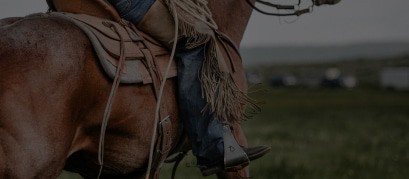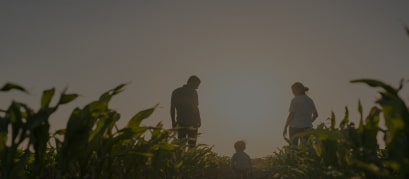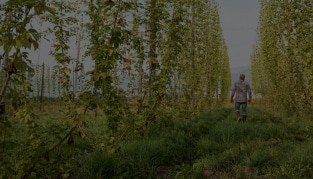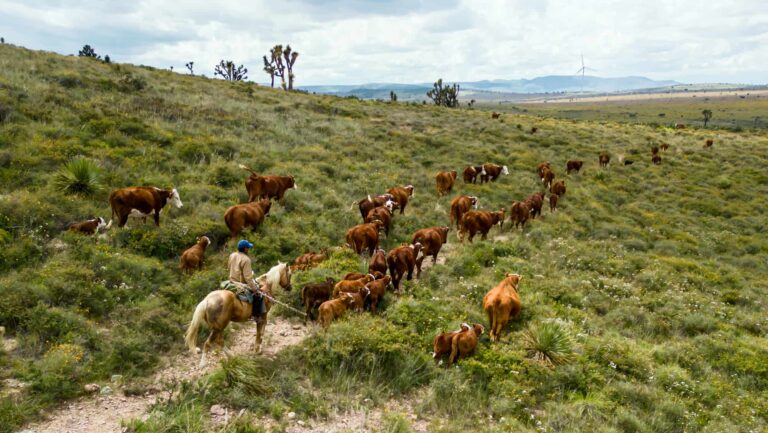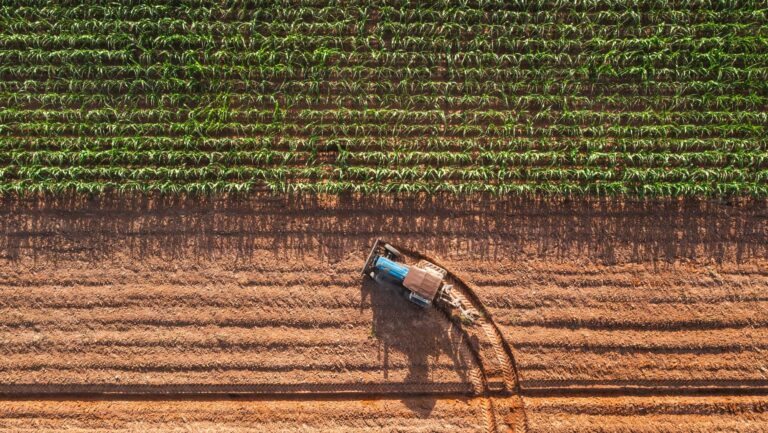Three Generations of Texas Family Farmers
Three Generations of Texas Farmers and the Lessons Behind the Growth of their Family Farm
The Sandy Country series first introduced the touching story of Lanny and Rita Bezner and the journey they took to build their family-operated farm, 3B Farms. The video takes a glimpse into the 16,000-acre Texas operation that grows corn, wheat, alfalfa, watermelons, and grain sorghum, in addition to an expansive livestock operation that includes more than 8,500 head of cattle.
In the third installment, Three Generations of Texas Farmers, we introduce Brian Bezner, a second-generation farmer, and his son William who is part of the next generation managing 3B Farms. They share the greatest lessons that they’ve learned from working with their family members, and how agriculture has shaped their relationships and outlook on farming.
Watch a preview of The Sandy Country: Three Generations of Texas Farmers in the video below.
Working Together to Support a Family Farm Operation
In 1969, Lanny Bezner purchased his first parcel of farmland in Dalhart, Texas. Brian was just five years old when his family moved out to the farm and began growing 3B Farms. As a family operation, the responsibility of the farm fell on Lanny’s shoulders, and as Brian recalls, most days were dedicated to spending time helping his father maintain farm equipment and care for the land.
“You know, we went to work with dad every day that we were out of school, every day. Anything from sweeping the barn, to opening gates, to checking nozzles on sprinklers.”
Brian Bezner
Upon high school graduation, Brian and his siblings returned to the farm to contribute to his father’s vision of expanding the family operation. It was shortly after that when 3B Farms’ growth exploded.
Starting with a small parcel of land, today the farm stretches out over 28 tracts that collectively make up 16,000 acres. Reaching that size of an operation didn’t come quickly or easily, as Brian explained, “My parents made sure that all of us could go to a private catholic school in Dalhart. There was a lot of times that you didn’t get a new bike for your birthday… Mom and dad made sacrifices [for us] to go there, and I think us kids probably did, too, which, in the end… That education was better than any bicycle I could’ve ever got”.
Working on the farm at an early age meant giving up some of the traditional childhood experiences, like sports. Alternatively, they received life lessons in responsibility, independence, and gratitude. Brian credits his father Lanny for being his primary educator, teaching him over the last 45 years everything he knows about agronomy, agribusiness management, and animal science. His on-the-farm experience has also taught him valuable skills with vehicle and equipment maintenance, banking, and budgeting.
Scaling the Family Farm to Increase Profitability and Support the Next Generation
As Brian shared with us, each family member plays a vital role in the success of the farm. As a family, they made it a point to reinvest back into their land as they built equity in their operation. Pushing their individual capacity to service the land is what drove their growth and permitted 3B Farms to expand even during the more challenging farm seasons. Expanding the operation didn’t just include the farmland, it required modifications to the types of technology and equipment that they used. According to Brian, in the 1950s a standard farm tractor was around $1,200, today the type of tractor or combines the 3B Farms requires to manage their operation is close to half a million dollars. Having advanced combines and agritech allows them to service larger parcels of land over a shorter period of time. This has been key to their expansion as it has allowed them to cope with flat grain prices over the last 50 years, as well as labor shortages.
“On the equipment side of it, the technology piece is … It’s got to be a really big deal because we can’t find enough help to do what we do. We try to really go through technology and try to make sure that it actually is an ROI piece of equipment. You know, it really has helped a lot, whenever you get into efficiencies and dealing with something like hail or drought”.
Advanced technology has also allowed them to improve efficiencies with manual work. Using monitoring systems, they can preemptively correct manual techniques based on collected observations and data. Use of this technology has led to the fast scale in growth in 3B Farm’s history.
What Agriculture Means to Multi-Generational Family Farmers
“In 20 years, the outlook is we’re gonna have to produce almost double what we do now, just to feed the world population …We’re gonna have to have some young kids that want to do this, and I hope that we’ve raised some here on this farm, whether it be my kids, my nephews, step-nephews, something”.
As a second-generation farmer, Brian has come to experience and watch the power of the land and the bond that is built between a family who works together to achieve a dream. As he says, farming is a “deep feeling within” him and one that ties his entire family together. While agriculture has its tough seasons, the invaluable lessons that it teaches you, like humility, are what drive farmers like Brian to continue caring for the land.
Brian’s biggest wish for the future of 3B Farms is for the third generation to cherish the land and labor as much as he and his siblings have over the years.
